Premium Only Content
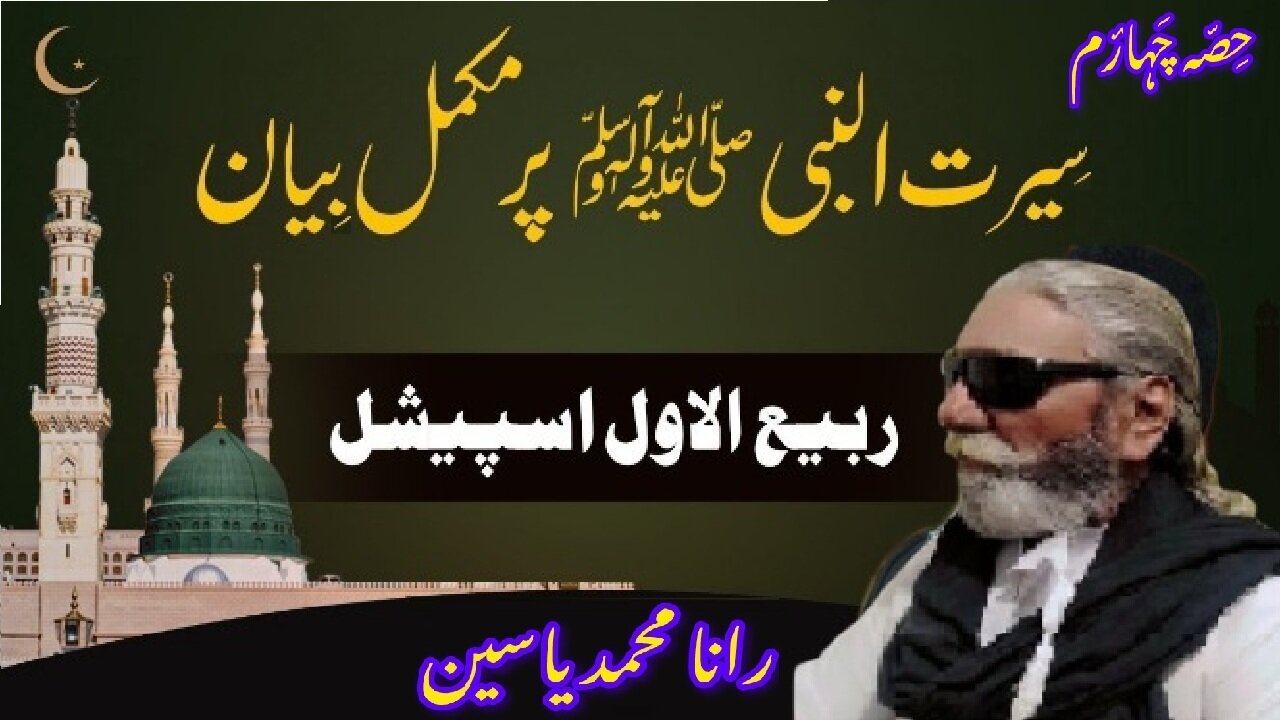
Rabi-ul-Awwal Special Biography of Prophet Muhammad (PBUH) Part-4 سیرت نبوی صلی اللہ علیہ وسلم
@quranhadithlight #seeratunnabi #prophetmuhammad #lifeofprophet #seerah #rasoolallah #islamichistory #sirahnabawi #makkahmadinah
#farewellsermon #quranhadith #seeratnabi #biographyprophet #sunnah #islamicvideos #islamicchannel #prophetstory #seerahmubarak #propheticlife #lightofislam #siratunabi #Part4
The Final Years of Prophet Muhammad (PBUH)(Part-4)
Assalamu Alaikum wa Rahmatullahi wa Barakatuhu!
Welcome back, dear viewers, to the final and most emotional part of the Biography of Prophet Muhammad (PBUH). Yesterday, in Part Three, we reflected on the first revelation, the struggles in Makkah, and the sacrifices made in the early years of Islam. We saw how the Prophet (PBUH), despite persecution, never wavered in his mission of calling humanity to the worship of Allah alone.
Today, we move forward to **Part Four: The Last Years of the Prophet (PBUH). This stage includes his migration to Madinah, the establishment of the Muslim community, the battles fought in defense of Islam, and the spread of the message beyond Arabia. We will also reflect on his Farewell Hajj, where he (PBUH) delivered his timeless sermon — a message of unity, justice, and devotion that remains a guiding light until the Last Day.
Finally, we will recount his noble passing, when the Messenger of Allah Almighty returned to his Lord, leaving behind the Qur’an, the Sunnah, and a legacy that will guide believers until the end of time.
Let us begin this final part of our journey together.
As the years of his blessed mission advanced, the Messenger of Allah Almighty moved from days of hardship in Makkah into the era of light and triumph in Madinah. The seed of Islam, once hidden and fragile, had now grown into a flourishing tree that provided shade and guidance for countless hearts. Yet, even as victories came, the Prophet (PBUH) remained the most humble servant of Allah, his eyes never turning from the Hereafter, his heart filled with mercy for all of mankind.
After the Hijrah to Madinah, the Prophet (PBUH) established the first Islamic community upon the foundations of faith, justice, and unity. The Qur’an describes this brotherhood in Surah Al-Hujurat verse 10:
“Indeed the believers are but brothers, so make settlement between your brothers. And fear Allah that you may receive mercy.”
The Ansar (helpers of Madinah) welcomed the Muhajirun (emigrants from Makkah) as true family, sharing their homes and wealth. The Prophet (PBUH) created bonds of brotherhood, pairing companions from Makkah with those from Madinah. This spirit of solidarity built the strength of the Muslim Ummah, preparing it for the challenges ahead.
The Prophet (PBUH) was not merely a spiritual leader; he was also a statesman. He established the Constitution of Madinah, a treaty that ensured coexistence between Muslims, Jews, and other tribes, granting rights and obligations to each group. It was one of the earliest written constitutions in history, showing the Prophet’s (PBUH) wisdom in governance.
In the sixth year after the Hijrah, the Prophet (PBUH) set out with his companions to perform Umrah in Makkah. The Quraysh, however, blocked their entry. Instead of escalating to battle, the Prophet (PBUH) agreed to a treaty at a place called Hudaybiyyah.
Though the terms seemed unfavorable — Muslims were not allowed to perform Umrah that year, and any Makkan who joined the Muslims without guardian permission had to be returned — the Prophet (PBUH) accepted it with patience, guided by revelation. Allah reassured the believers in Surah Al-Fath verse 1:
“Indeed, We have given you, [O Muhammad], a clear victory.”
The Treaty of Hudaybiyyah proved to be a turning point. The peace allowed the message of Islam to spread widely, as tribes visited Madinah freely and listened to the Qur’an without fear of war. Within two years, the number of Muslims grew exponentially.
The Prophet (PBUH) also began sending letters to rulers beyond Arabia, inviting them to Islam. These letters were sent to Heraclius, the Byzantine emperor; Kisra of Persia; the rulers of Egypt, Abyssinia, and others. Some received the letters respectfully, while others rejected them. Yet, these invitations carried Islam beyond the Arabian Peninsula and marked the beginning of its global mission.
One famous narration mentions Heraclius, who after hearing the message of Islam, reportedly said in sahih bukhari hadith 7: “If what you say is true, he will soon occupy the place beneath my feet.”
In the eighth year after Hijrah, the Quraysh violated the Treaty of Hudaybiyyah. The Prophet (PBUH) marched towards Makkah with an army of 10,000 believers. Yet, his entry into Makkah was not one of arrogance or bloodshed; it was one of mercy and forgiveness.
Standing at the Ka‘bah, he declared to the people who once persecuted him:
(echoing Surah Yusuf, 12:92) “No blame will there be upon you today. Go, for you are free.”
Idols within the Ka‘bah were destroyed as the Prophet (PBUH) recited Surah Al-Isra verse 81:
“And say: Truth has come, and falsehood has vanished. Indeed, falsehood is bound to vanish.”
This moment marked the triumph of tawheed (monotheism) over shirk (polytheism). Makkah, once the center of idolatry, became the heart of Islam.
In the tenth year after Hijrah, the Prophet (PBUH) performed his only Hajj after the migration, known as the Farewell Pilgrimage. Over 100,000 Muslims accompanied him, gathering in a sea of white garments on the plains of Arafat.
Here, the Prophet (PBUH) delivered his Farewell Sermon (Khutbat al-Wada‘), a summary of his mission and guidance for humanity. He said (Sunan Ibn Majah, Hadith 3055):
“O people, lend me an attentive ear, for I do not know whether after this year I shall ever be amongst you again in this place.”
He emphasized the sanctity of life, property, and honor, declaring them as sacred as the holy month and city. He abolished the practices of Jahiliyyah, forbidding usury and blood feuds. He reminded the Ummah of the rights of women, urging kindness and fairness.
Most importantly, he declared the brotherhood of believers:
“All mankind is from Adam and Eve. An Arab has no superiority over a non-Arab, nor a non-Arab over an Arab; a white has no superiority over a black, nor a black over a white — except by piety and good action.”
On that day, Allah revealed one of the final verses 3 of the Surah Al-Maidah:
“This day I have perfected for you your religion and completed My favor upon you and have approved for you Islam as your religion.”
The companions wept with joy, though some sensed that the Prophet’s (PBUH) mission was nearing its completion.
Soon after returning to Madinah, the Prophet (PBUH) fell ill. He suffered from fever and weakness, yet he continued to lead the community with patience. He would visit the graves of the martyrs of Uhud, pray for forgiveness for them, and remind his companions of the Hereafter.
During his illness, he appointed Abu Bakr (RA) to lead the prayers, signaling his role as the Prophet’s (PBUH) successor. Aisha (RA) narrates in Sahih Al Bukhari Hadith 684:“The Messenger of Allah Almighty said, ‘Order Abu Bakr to lead the people in prayer.’”
His illness worsened, and he moved to the chamber of Aisha (RA), where he spent his final days.
On the 12th of Rabi‘ al-Awwal, in the 11th year after Hijrah, the Messenger of Allah Almighty departed from this world. He raised his hand toward the heavens, whispering:
(Sahih al-Bukhari, Hadith 4437) “With the highest companionship (ar-Rafiq al-A‘la).”
The room was filled with sorrow. The companions could not believe that the Prophet ? had left them. Umar ibn al-Khattab (RA) stood in shock, declaring that anyone who said Muhammad ? had died was lying. But Abu Bakr (RA) calmed the people, reciting (Surah Aal-e-Imran, verse 144):
“Muhammad is no more than a Messenger; other Messengers have passed away before him. If he dies or is slain, will you then turn back on your heels?”
Hearing this, the companions realized the truth: the Messenger (PBUH) had returned to his Lord, but his message would live forever.
The passing of the Prophet Muhammad (PBUH) was the greatest sorrow the Ummah ever faced, yet his life left behind the greatest legacy. He (PBUH) entered this world as an orphan, lived with humility, and departed leaving behind neither wealth nor kingdom, but a religion that illuminates the world.
His character was described by Allah Himself in Surah Al-Qalam, verse 4:
“And indeed, you are of a great moral character.”
His guidance remains preserved in the Qur’an and Sunnah, a mercy for mankind. As believers, our love for him is part of our faith, for he (PBUH) said (Sahih al-Bukhari, Hadith 15): “None of you truly believes until I am more beloved to him than his father, his child, and all mankind.”
And so, his final years were not an end, but the beginning of Islam’s eternal light. From Madinah it spread to the east and west, fulfilling the words of Allah (Surah As-Saff, versre 9:
“It is He who sent His Messenger with guidance and the religion of truth to make it prevail over all religion, even though the polytheists dislike it.”
May peace and blessings be upon Muhammad (PBUH), the seal of the Prophets, the mercy to the worlds. May Allah gather us under his banner on the Day of Judgment and grant us his intercession. And may we live by his Sunnah until we too are called to join the Highest Companionship (ar-Rafiq al-A‘la).
Alhamdulillah, with the help and mercy of Allah, we have now reached the end of this blessed journey — the complete biography of Prophet Muhammad (PBUH) in four parts. We began with his noble birth, continued through his childhood and youth, reflected upon the moment of revelation and his mission as a Prophet, and finally arrived at his last years, his Farewell Hajj, and his return to the mercy of his Lord.
Though the Prophet (PBUH) left this world more than fourteen centuries ago, his guidance remains alive through the Qur’an and the Sunnah. His character, his compassion, his justice, and his devotion to Allah are eternal examples for every believer. Allah reminds us in Surah Al-Ahzab, verse 21.: “Indeed, in the Messenger of Allah (Muhammad (PBUH)) you have an excellent example for whoever hopes in Allah and the Last Day and remembers Allah often.”.
As we close this series, let us renew our love for the Messenger of Allah Almighty, send abundant salawat upon him, and strive to live by his teachings. May Allah unite us with him in Jannah al-Firdaus and make us among those who follow his path until the Last Day. Ameen.
Allah Hafiz
====================
-
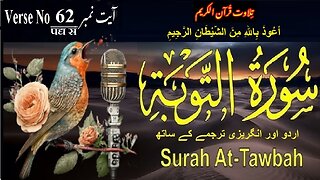 1:17
1:17
ISLAMIC HISTORY
24 minutes agoSurah At Taubah Verse No 62 تلاوت َسورة اَلتَّوْبَة اردو اور انگریزی ترجمے کے ساتھ آیت نمبر
1 -
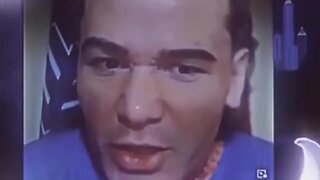
Jake Shields' Fight Back Podcast
7 hours agoJake Shields and Paul Miller!
8.38K12 -
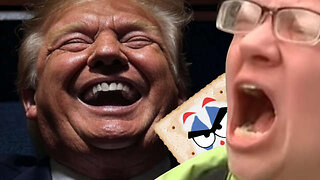 LIVE
LIVE
TheSaltyCracker
1 hour agoTrump Is Not Dead ReEEeStream 8-31-25
14,392 watching -
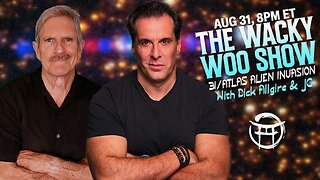 LIVE
LIVE
Jean-Claude@BeyondMystic
11 hours ago🌀 THE WACKY WOO SHOW 3I ATLAS ALIEN INVASION with DICK ALLGIRE & JC - AUG 31 , 20254
5,724 watching -
 2:26:21
2:26:21
vivafrei
11 hours agoEp. 279: Patel's GF Sues for Defamation! Rogue Judges vs. Trump! Raja Jackson, Kick Stream & MORE!
108K42 -
 LIVE
LIVE
SpartakusLIVE
2 hours ago#1 Verdansk Sniper gets HACCUSATIONS because of INSANE Headshots
207 watching -
 18:52
18:52
Colion Noir
8 hours agoCourt Rules You Don't Need AR-15s For Self Defense, Mayor's Message If You Love Kids Ban AR-15s
10.7K39 -
 1:56:25
1:56:25
Nerdrotic
3 hours ago $1.92 earnedThe Mysteries of Mars and the Moon with Mike Bara | Forbidden Frontier #114
10.6K3 -
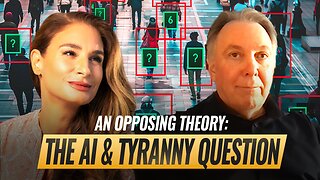 1:11:31
1:11:31
The Mel K Show
2 hours agoMel K & Chas Holloway | An Opposing Theory: The AI & Tyranny Question | 8-31-25
5.48K2 -
 LIVE
LIVE
Rallied
2 hours ago $1.26 earnedSolo Challenges All Day
159 watching